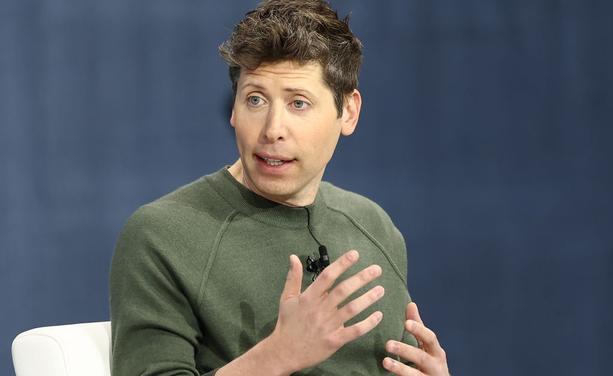#Superintelligence refers to a hypothetical form of artificial intelligence (AI) that vastly surpasses human intelligence in all domains.
https://knowledgezone.co.in/trends/browser?topic=Superintelligence
#Superintelligence refers to a hypothetical form of artificial intelligence (AI) that vastly surpasses human intelligence in all domains.
https://knowledgezone.co.in/trends/browser?topic=Superintelligence
The #Race for #Superintelligence: #Scaling, #Challenges, and Future #Prospects : Medium
You should be setting #Rejection #Goals : Vox
Why #Women’s #Brains are more #Resilient: it could be their ‘silent’ X #Chromosome : Nature
Check our latest #KnowledgeLinks
Reflection – AlphaGo / Gemini team building superintelligent coding agents — https://www.reflection.ai/superintelligence/
#HackerNews #Reflection #AlphaGo #Gemini #Superintelligence #CodingAgents #AIResearch

THRILLED to hail you here and present my recently released Audible audiobook The Cybernetic Singularity: The Syntellect Emergence!
*See Audiobook/eBook on Amazon: www.amazon.com/dp/B08R2KLJ7Z
From one of my favorite sources on #ai Gary Marcus, we’re nowhere near #agi or #superintelligence and the US has not ‘won’ the race. #china is relreasing interesting models ang the unethical ressource consuming race continues

Dieu arrive.
Craignez pour vos vies.
Oui, encore.
Mais cette fois c'est pour de vrai :)
The Event Horizon of Superintelligence: Are We Ready for AI That Thinks Like Us?
As we stand on the brink of a technological revolution, the emergence of superintelligence looms large. With algorithms that can reason and self-improve, the implications for society—and the workforce...
The Lebowski Theorem of Machine #Superintelligence
"Bostrom, reached while on a bowling outing with friends, was said to have replied, “Yeah, well, you know, that’s just, like, your opinion, man.” #AI #KI #Lebowski
https://kottke.org/18/04/the-lebowski-theorem-of-machine-superintelligence

Sam Altman,
CEO of OpenAI,
has set the tone for the year ahead in AI with a bold declaration:
OpenAI believes it knows how to build #AGI (artificial general intelligence)
and is now turning its sights towards #superintelligence.
While there is no consensus as to what AGI is exactly, OpenAI defines AGI as
"highly autonomous systems that outperform humans in most economically valuable work".
Altman believes superintelligent tools could accelerate scientific discovery and innovation beyond current human capabilities,
leading to increased abundance and prosperity.
Altman said:
"We are now confident we know how to build AGI as we have traditionally understood it.
We believe that, in 2025, we may see the first AI agents
“join the workforce” and materially change the output of companies.
We continue to believe that iteratively putting great tools in the hands of people leads to great, broadly-distributed outcomes.
We are beginning to turn our aim beyond that -- to superintelligence in the true sense of the word.
Superintelligent tools could massively accelerate scientific discovery and innovation well beyond what we are capable of doing on our own,
and in turn massively increase abundance and prosperity."
Multiple AI researchers from leading labs have now expressed similar sentiments about the timeline for AGI .
In fact, last June, Ilya Sutskever (who played a key role in the failed attempt to oust Altman as CEO), departed OpenAI and founded what he described as the world's first "straight-shot superintelligence lab".
In September, Sutskever secured $1 billion in funding at a $5 billion valuation.
Altman’s reflections come as OpenAI prepares to launch its latest reasoning model, o3, later this month.
The company debuted o3 in December at the conclusion of its "12 Days of OpenAI" event with some impressive benchmarks

L'#IA, de la poudre aux yeux ?
Dans un article récent du magazine Time (https://time.com/7205596/sam-altman-superintelligence-agi/), Sam Altman, actuel CEO de #OpenAI décrit sa vision d'une #Intelligence #Artificielle Générale (#AGI) ou "#superintelligence" qui est sensée révolutionner la planète. Dans une course effrénée au profit il annonce l'avènement d'une nouvelle ère pour cette année ou tout du moins sous le nouveau règne de #DonaldTrump
1/4
...

https://www.europesays.com/1749240/ Entering The Artificial General Intelligence Spectrum In 2025 #AGI #AI #Altman #ArtificialGeneralIntelligence #ArtificialIntelligence #OpenAI #reasoning #superintelligence #Sutskever
Sam Altman says “we are now confident we know how to build AGI” - On Sunday, OpenAI CEO Sam Altman offered two eye-catching predictions abou... - https://arstechnica.com/information-technology/2025/01/sam-altman-says-we-are-now-confident-we-know-how-to-build-agi/ #simulatedreasoning #superintelligence #claude3.5sonnet #machinelearning #garymarcus #anthropic #samaltman #srmodels #biz #claude #o1-pro #openai #agi #ai #o1 #o3 #sr

Vitalik Buterin floats ‘soft pause’ on compute in case of sudden risky AI - Vitalik Buterin says a last resort to “slow down” risky forms of superin... - https://cointelegraph.com/news/buterin-soft-pause-ai-compute-prepare-risky-ai #artificialintelligence #superintelligence #vitalikbuterin #e/acc #d/acc #agi #ai
Honestly, #AI will require #superintelligence just to cross the chasm from “what I say” to “what I mean.”
When we say “AI is stupid” what we mean is “I am too stupid to say what I actually mean.”
The one caveat is that meaning is created through dialogue. One-shot understanding is a high bar, and not necessary. Hence the medium of “chat” not “command line.”
https://infosec.exchange/@david_chisnall/113752873453490050
Oxford shuts down institute run by Elon Musk-backed philosopher
Oxford University this week shut down an academic institute run by one of Elon Musk’s favorite philosophers.
The Future of Humanity Institute,
dedicated to the long-termism movement
and other Silicon Valley-endorsed ideas such as effective altruism,
closed this week after 19 years of operation.
Musk had donated £1m to the FIH in 2015 through a sister organization to research the threat of artificial intelligence.
He had also boosted the ideas of its leader for nearly a decade on X, formerly Twitter.
The center was run by Nick Bostrom
, a Swedish-born philosopher whose writings about the long-term
threat of AI replacing humanity
turned him into a celebrity figure among the tech elite and routinely landed him on lists of top global thinkers.
OpenAI chief executive Sam #Altman, Microsoft founder Bill #Gates and Tesla chief #Musk all wrote blurbs for his 2014 bestselling book #Superintelligence.
“Worth reading Superintelligence by Bostrom. We need to be super careful with AI. Potentially more dangerous than nukes,” Musk tweeted in 2014.
️#Bostrom resigned from Oxford following the institute’s closure.
️
The closure of Bostrom’s center is a further blow to the "#effective #altruism" and #longtermism movements
that the philosopher has spent decades championing,
which in recent years have become mired in scandals related to #racism, #sexual #harassment and #financial #fraud.
Bostrom himself issued an apology last year after a decades-old email surfaced in which he claimed
“Blacks are more stupid than whites” and used the N-word.
https://www.theguardian.com/technology/2024/apr/19/oxford-future-of-humanity-institute-closes?CMP=Share_iOSApp_Other